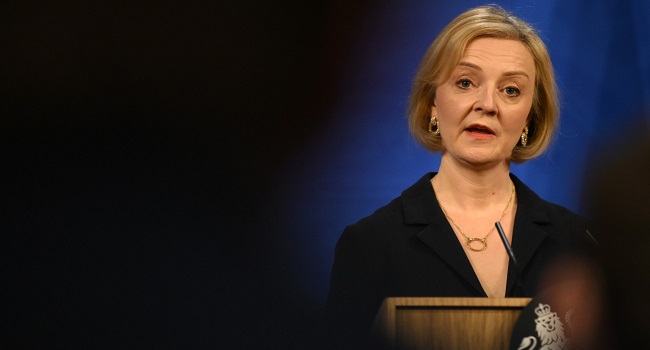Liz Truss Loses Seat in Stunning Election Defeat
Liz Truss, the UK’s shortest-serving prime minister, faced another political setback on Friday, dramatically losing her seat in parliament during the British general election.
Truss’s loss was part of a broader rejection of the Conservative Party, which had held power since 2010. All her predecessors’ constituencies turned either Labour or Liberal Democrat, highlighting the electorate’s dissatisfaction with the Tories’ 14-year tenure.
In Norfolk South West, Truss was unseated by Labour candidate Terry Jermy, who overturned her significant majority from 2019, winning by 630 votes—a notable 27.85 percent swing. Truss’s brief and tumultuous premiership in 2022, marked by financial instability, likely contributed to her defeat.
Her loss was confirmed around 7:00 am, capping a disastrous night for Rishi Sunak’s Conservative Party. Keir Starmer’s Labour party secured a landslide victory, returning to power after 14 years.
Truss, an MP since 2010, received a cold reception on stage and left without making a speech. She later told the BBC, “I think the issue we faced as Conservatives is we haven’t delivered sufficiently on the policies people want.” When asked about her responsibility, she acknowledged her part in the party’s failures.
Truss, whose tenure as prime minister was humorously compared to the shelf-life of an iceberg lettuce, hinted at reconsidering her political future, stating she had “a lot to think about.”
While Sunak retained his seat, other prominent Conservatives, including Boris Johnson, Theresa May, and David Cameron, saw their constituencies fall to opposition parties. Labour captured Johnson’s former seat in Uxbridge and South Ruislip, while May’s ex-seat of Maidenhead went to the Liberal Democrats. The Liberal Democrats also won Cameron’s old seat of Witney in Oxfordshire.
